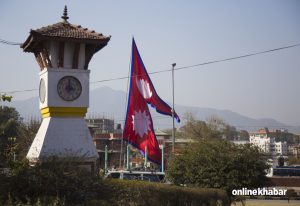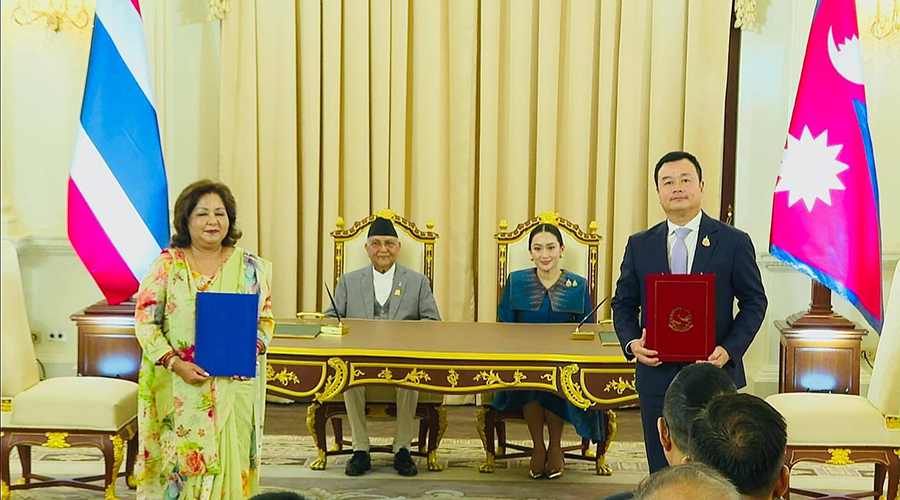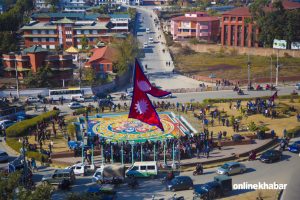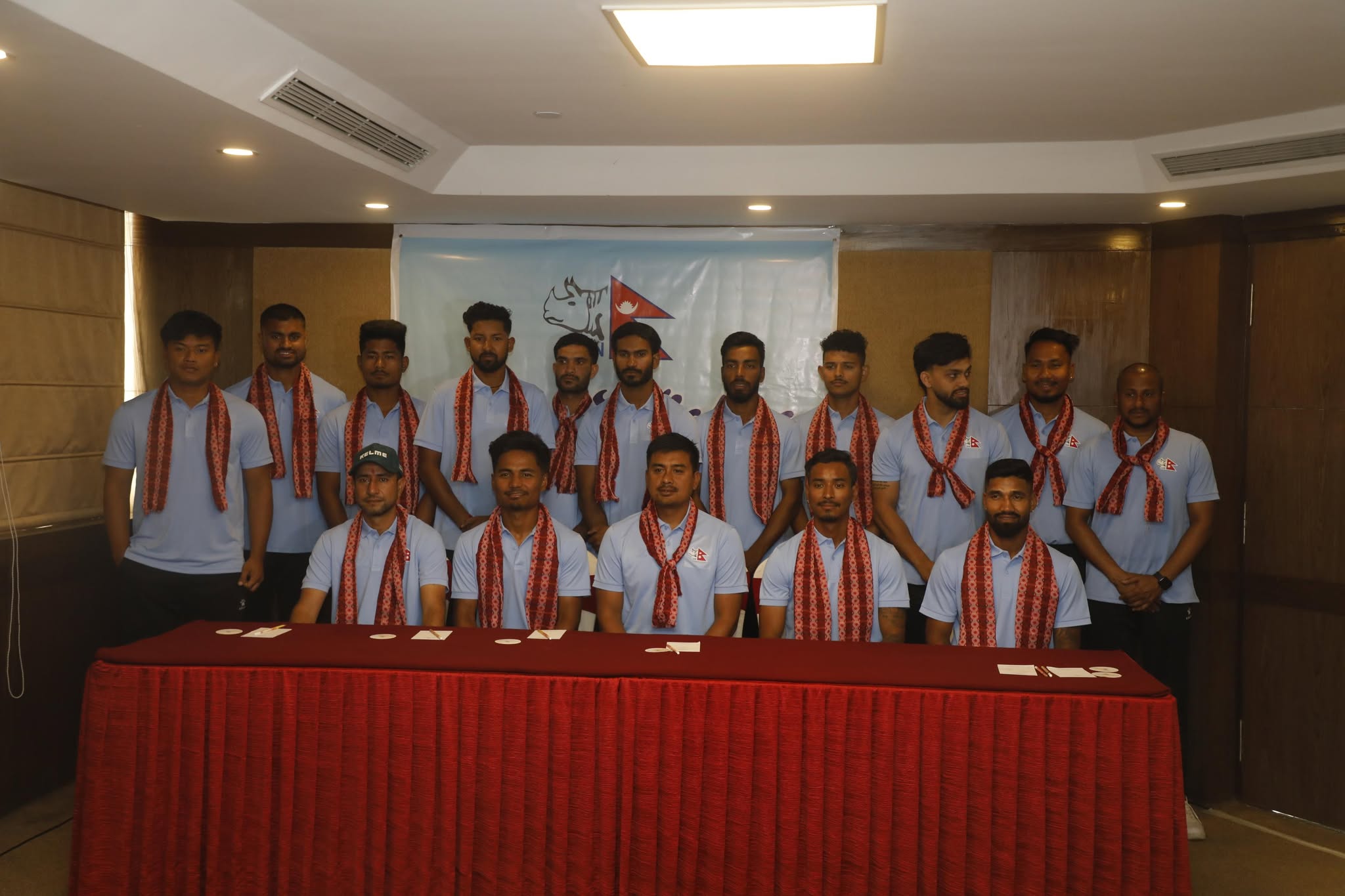
Many young Nepalis choose The British College in Kathmandu for the British degree that it offers. These degrees range from computer science and digital forensics to hotel management and business administration.
One of the universities that the college is patterned with is the University of West of England. The university’s head of international partnership for the College of Business and Law, Patricia Voaden, was in Nepal recently to attend the college’s graduation ceremony.
Voaden has worked in tandem with The British College since 2014. At the UWE, she has also been the head of the Department for Business and Management and the head of the Department for Accounting, Economics and Finance.
Onlinekhabar recently spoke to Voaden about the standards at The British College, why the college stands out and the importance of earning a British degree in today’s day and age.
Excerpts:
How was the graduation ceremony?
It was wonderful. I’d been here in 2017 too, but this time around, there were so many students. It was great to see a sense of pride and accomplishment on the faces of both the students and their families. These ceremonies are great as they’re a result of their hard work and it’s very rewarding to see this.
How long have you been working in tandem with The British College? How have you found the institution?
I’ve been working for the University of West of England for around 18 years. During my time there, I’ve had various responsibilities. More recently, I’ve been the head of the Department for Business and Management and the head of the Department for Accounting, Economics and Finance. I’ve always worked with the business schools of the university and understand the programmes offered by the business school.
During that time, I started to work with international partnerships. One of those partnerships was The British College, with whom I’ve been working since 2014. I work closely with them because the programmes that are run by The British College are closely linked with UWE Business School programmes, particularly the BBA programmes. These programmes are the same as those we run at UWE in Bristol working with our academics.
In 2017, I came to Nepal and visited the college and was a part of its graduation and help graduate the students. After that, I was quite interested in the work being done by The British College and started work on how the franchise could be expanded. It’s been very interesting to see how the franchise has grown as we have a large number of students studying at the undergraduate level here doing the whole of the degree at The British College and graduating with a UWE degree, which is a good thing to do and an important qualification to get.
We’ve also now franchised a master’s programme to The British College, a master’s in international business, and it is a very desirable qualification to get as students can study in Nepal and get a British master’s degree.
I’ve overseen the franchising of two degrees, one at the undergraduate level and one at the moment at postgraduate level and that’s the relationship I and UWE are growing with the college.
What similarities have you found in the ways the programmes are run here at The British College and the UWE’s Business School in Bristol?
I think the quality is the same. The British College are keen on quality and making sure the standards of the programmes are good. The academic staff here in Nepal work extremely hard to make sure they are implementing the standards that are required at the University of West of England in the UK.
One of my jobs is to oversee that the staff here at The British College are teaching with the same standards followed by the UWE. So, I can honestly say they are equivalent because we wouldn’t allow it otherwise as we wouldn’t be able to franchise a programme if we weren’t assured of the quality being delivered.
From a quality perspective, we work very closely with the staff. For example, when a student studies a curriculum, they study the same curriculum. The material and assessments are the same. When students here take their exams or write their assignments, they are marked and moderated in Nepal. They are then marked and moderated at UWE and then we also have external examiners looking at the quality of work as well. So, this keeps the quality very high and of a similar standard.
Sometimes, I do get asked by the students if this is the same degree as the UK. And I tell them it is the same degree. The curriculum studied and the learning outcome of the programme, the modules and the assessment standards are all the same.

Do you also do student exchange programmes? Is it mostly regional or international too?
Yes, we do that quite a lot. We did it regularly before the pandemic when we took students from The British College to the University of West of England, but obviously, during the pandemic, the student exchange programmes were stopped, but we hope to get it back running soon as we’re always very keen to host students from Nepal whether it be on a summer school or a student exchange programme.
For now, we are only conducting the exchange programmes with the UWE but we do have a number of different partnerships in universities in Vietnam, the Maldives and a few franchise partners in China where we might do exchange programmes in the near future. It is a bit complex to do it there, but there are plans to do inter-partnership exchanges.
What about students from UWE coming to Nepal and studying at The British College?
We would like to encourage that because it would be of huge benefit to the students studying here. But, we need to make sure everything is in order and in place for them to do that. Sometimes, the students are shy and cautious to do that but it’s something we would definitely like to encourage. I feel it would be a fabulous learning experience and cultural experience for students in the UK to do that.

It’s enrollment season in Nepal as hundreds of students are looking to enrol themselves in undergraduate degrees. What difference can students expect from a UWE degree at The British College compared to degrees offered by other foreign university-affiliated colleges?
The UWE degrees offered by The British College are very practice-led. So the programmes are linked to the industry and very practically applied. When UWE talks about its graduates, we talk about work-ready and able graduates. We are graduating students, particularly in the field of business who through the degree work on realistic situations as we spent time simulating enterprise and spend time-solving real business problems so that when they graduate, they are ready for the workplace.
Although that said, there is a very strong theoretical underpinning to the undergraduate and postgraduate programmes, it is applied as well. So we talk about real-world situations, we talk about work-ready and able graduates.
Do you also provide scholarships for students of The British College to study at UWE?
Yes. There is a scholarship programme that is run out of the Asia pacific office that UWE has. There are various different types of scholarships that students can apply for.
Is there also a way for The British College students to network with current UWE students or alumni?
Yes. UWE has a very strong alumni network and we’re looking to build that as time goes by. We’ve also built a large alumni network here at The British College too. Anyone who is an alumnus of the British College of the UWE programmes will be entitled to join the UWE’s alumni network. Since networking can be done online, it’s very easy for that to happen now.
What about job prospects? Should there be an opportunity, can graduates of The British College work in the UK?
Yes, of course. Having a British degree helps. It is a recognised standard education programme in the world. An employer would understand the level of what the student has been through to get the degree.






















